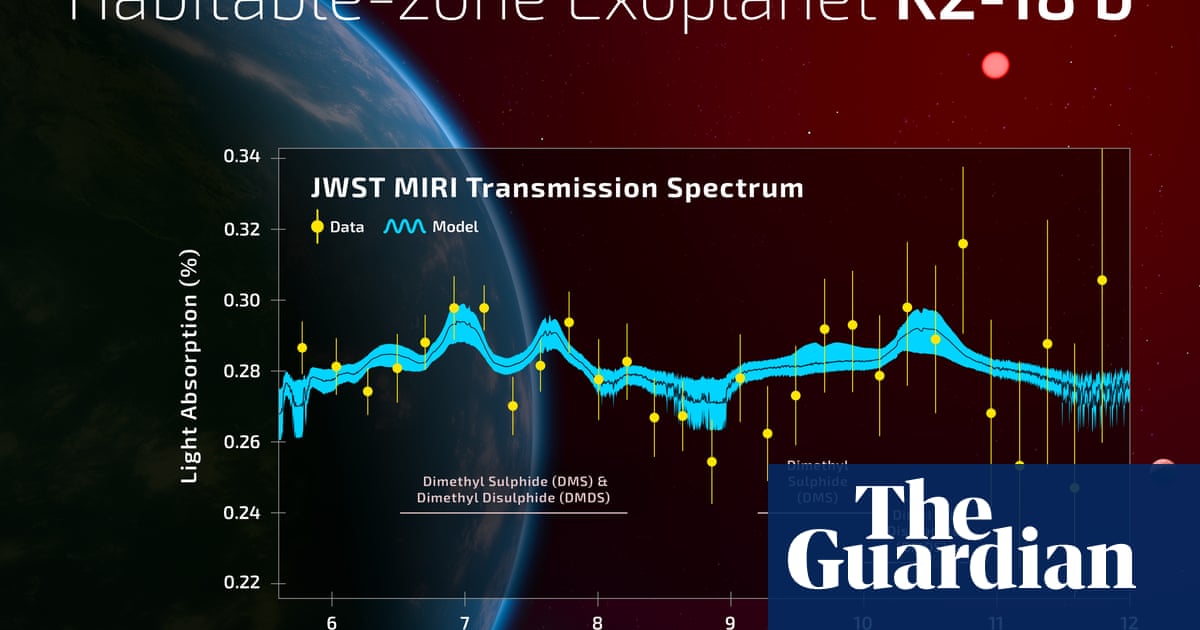Are we alone? New discovery raises hopes of finding alien life
TruthLens AI Analysis
The recent discovery regarding the potential for alien life has sparked significant interest and excitement within both the scientific community and the general public. By highlighting the findings related to two compounds in the atmosphere of the exoplanet K2-18b, this news piece aims to capture the imagination of readers and provoke thoughts about humanity's place in the universe.
Intent of the Publication
The article appears to serve multiple purposes: it seeks to inform the public about significant scientific advancements, while also igniting curiosity about extraterrestrial life. By referencing Stephen Hawking’s perspective, the piece connects past philosophical inquiries to current scientific endeavors, thereby framing the discovery as a pivotal moment in the ongoing search for life beyond Earth.
Public Perception
The narrative is crafted to generate a sense of hope and wonder regarding the existence of alien life, appealing particularly to those interested in space exploration and scientific progress. The article positions the discovery as a critical step toward answering the age-old question, “Are we alone?” This creates an optimistic atmosphere that could enhance public interest in science and space research.
Potential Concealments
While the article focuses on the excitement of the discovery, it does not extensively address the limitations and uncertainties surrounding the findings. The mention that the compounds could be produced through non-biological processes is somewhat downplayed. This selective emphasis might lead readers to form conclusions that are overly optimistic without fully grasping the complexities involved.
Manipulative Aspects
The use of emotionally charged language, such as "the living universe came within reach," may suggest a level of manipulation, encouraging readers to draw conclusions that align with the more sensational aspects of the story. The excitement is palpable, but the scientific community remains cautious, as indicated by the need for further observations before definitive claims can be made.
Reliability of the Report
The report is grounded in scientific findings, specifically the observations made by researchers at the University of Cambridge. However, it is essential to recognize that the conclusions drawn are tentative and require further validation through ongoing research. Thus, while the article conveys genuine scientific interest, it may lead to misinterpretations if the nuances of scientific inquiry are not adequately communicated.
Community Engagement
This type of news likely resonates more with communities that are already inclined towards science, technology, and space exploration. Enthusiasts of astronomy and those with a general interest in scientific discovery may find the article particularly stimulating. It fosters engagement from people who seek to understand humanity's broader context in the universe.
Economic and Political Implications
The implications of such discoveries can extend into various sectors, influencing funding for space exploration and scientific research initiatives. Heightened public interest might lead to increased investments in related industries, impacting stock prices of companies involved in aerospace and technology.
Geopolitical Context
From a geopolitical standpoint, the article underscores ongoing global interest in space exploration, which can affect international relations and collaboration. Nations may seek to bolster their own space programs in response to new discoveries, impacting global power dynamics in science and technology.
Artificial Intelligence Influence
There is no direct evidence to suggest that AI was utilized in crafting this specific article. However, the style of the writing, which combines factual reporting with a narrative flair, could reflect trends in journalism that leverage AI tools for content generation. If AI were involved, it might have influenced the language used to ensure clarity and engagement.
Conclusion
Overall, while the article presents an exciting scientific development, it is essential for readers to approach it with a critical mindset. The excitement is warranted, but the complexities of scientific discovery require careful consideration.
